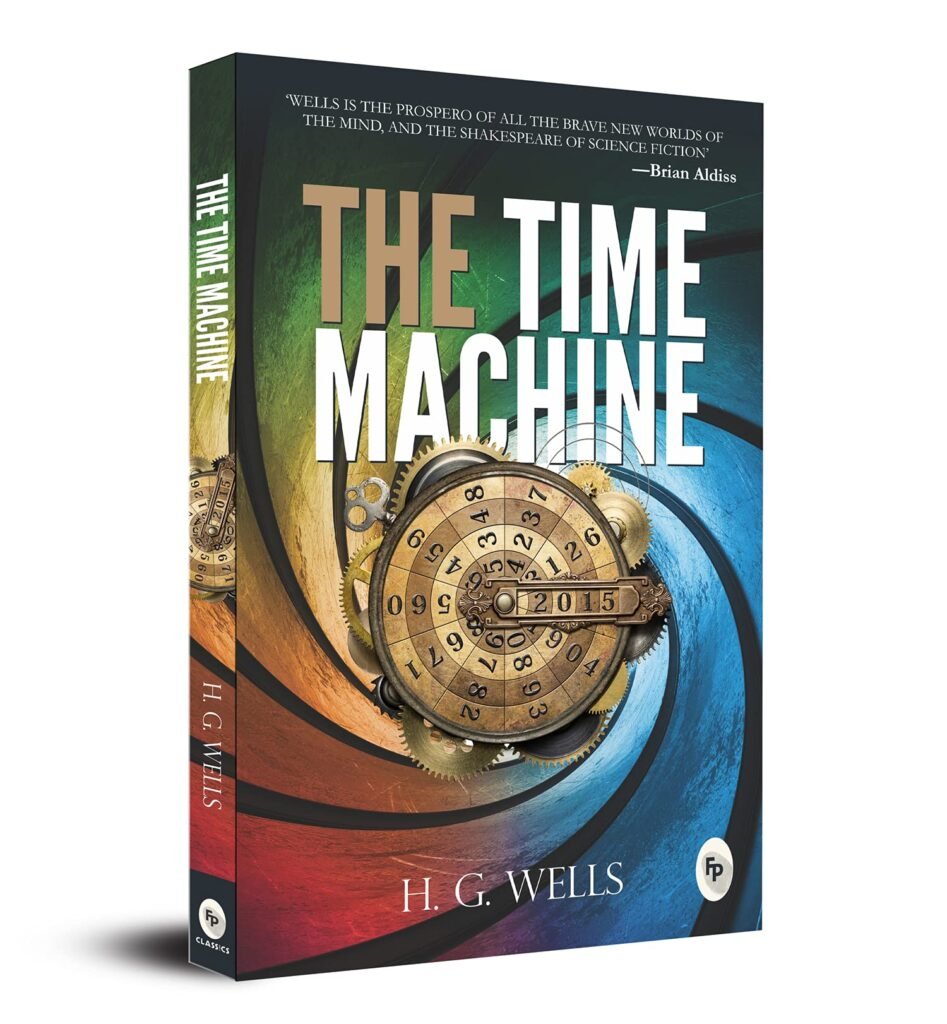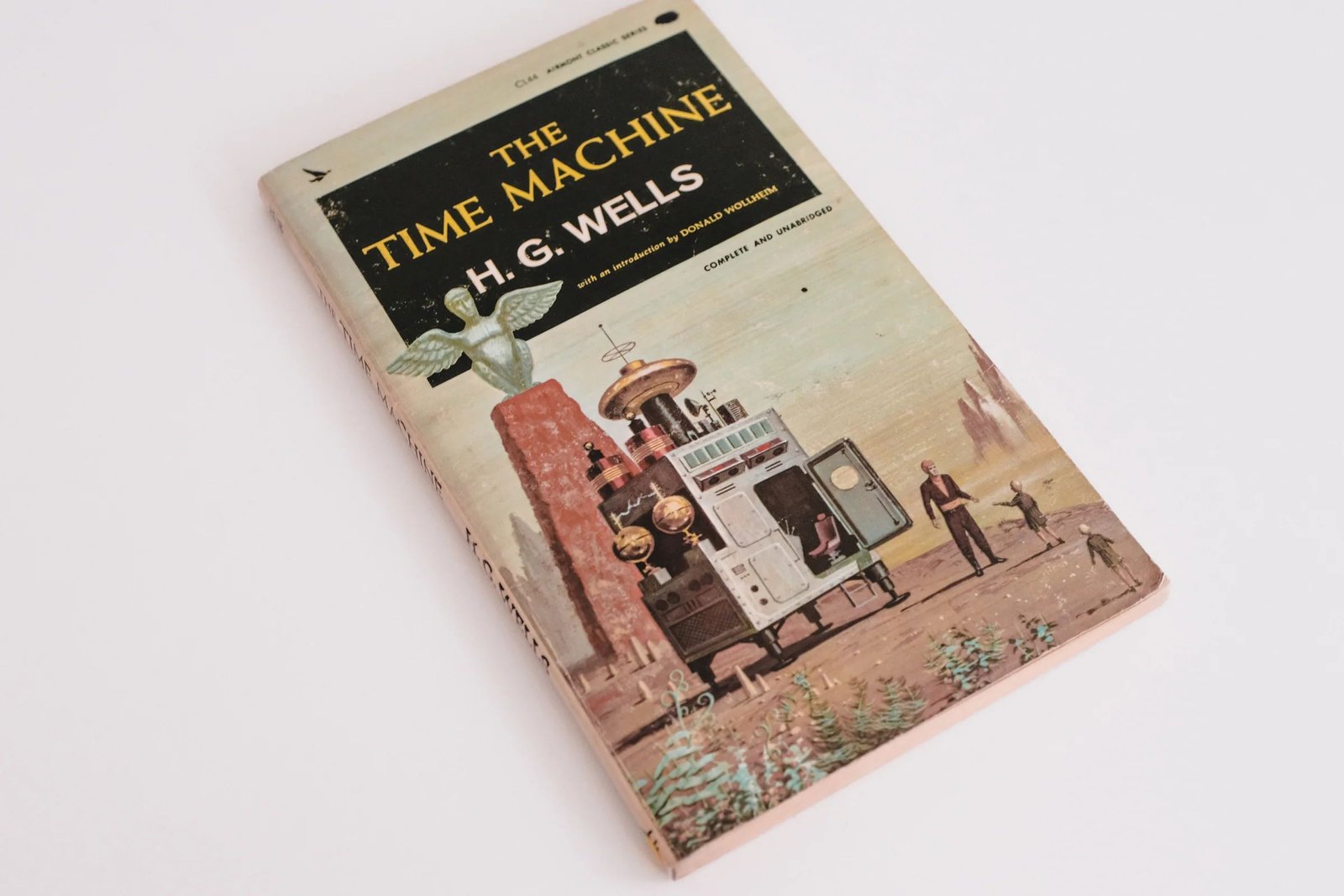H.G. Wells: The Author of ‘The Time Machine’
Introduction H.G. Wells, a name synonymous with science fiction, is the renowned author of “The Time Machine.” This classic novel, first published in 1895, introduced the concept of time travel to the world of literature. Wells’ visionary storytelling has left an indelible mark on the genre, influencing countless authors and filmmakers.
Early Life and Career Herbert George Wells was born on September 21, 1866, in Bromley, England. Despite facing financial difficulties in his early years, Wells showed a keen interest in literature and science. He won a scholarship to the Normal School of Science in London, where he studied biology under Thomas Henry Huxley. His education and experiences during this period significantly shaped his future works.
The Time Machine: A Groundbreaking Work “The Time Machine” is one of Wells’ most celebrated works. It tells the story of an unnamed Time Traveller who constructs a machine that allows him to travel through time. The novel explores various themes, including the consequences of unchecked scientific advancements, class disparity, and the inevitable decay of civilization. The book’s profound impact on science fiction is evident in its enduring popularity and the numerous adaptations it has inspired.
Themes and Impact Wells used “The Time Machine” to delve into complex themes that were ahead of his time. The novel critiques the socio-economic divide and foresees a future where human evolution takes a dark turn. Wells’ exploration of time as a fourth dimension was groundbreaking, and his imaginative approach opened new avenues for speculative fiction.
Legacy of H.G. Wells H.G. Wells’ influence extends beyond “The Time Machine.” His other notable works include “The War of the Worlds,” “The Invisible Man,” and “The Island of Doctor Moreau.” Wells is often referred to as the “father of science fiction,” a title well-deserved given his contributions to the genre. His ability to blend scientific concepts with compelling narratives has ensured his place in literary history.

Why This News is Important
Introduction Understanding the contributions of H.G. Wells, particularly his work “The Time Machine,” is crucial for students and enthusiasts of literature and science fiction. This knowledge not only enriches one’s appreciation of the genre but also provides insights into the historical context and evolution of speculative fiction.
Impact on Literature H.G. Wells’ work laid the foundation for modern science fiction. His imaginative concepts and storytelling techniques continue to influence writers and filmmakers today. Recognizing his impact helps students understand the development of literary genres and the ways in which historical and cultural contexts shape creative works.
Relevance to Modern Themes “The Time Machine” addresses themes such as social inequality, technological advancement, and the potential consequences of scientific exploration. These themes remain relevant in today’s world, where rapid technological changes and societal issues are prominent. Analyzing Wells’ perspectives encourages critical thinking about contemporary challenges and ethical considerations.
Inspirational Figure Wells’ journey from a humble background to becoming a literary giant is inspirational. His perseverance, intellectual curiosity, and innovative thinking serve as a motivational example for students aspiring to make their mark in any field. Learning about his life and achievements fosters a sense of resilience and creativity.
Historical Context
Introduction “The Time Machine,” published in 1895, emerged during a period of rapid technological and scientific advancements. The late 19th century was marked by industrialization, the exploration of new scientific frontiers, and significant social changes. These factors influenced Wells’ writing and the themes he chose to explore.
Industrial Revolution The Industrial Revolution, which began in the late 18th century and continued into the 19th century, transformed society. It led to urbanization, new technologies, and shifts in social structures. Wells’ depiction of a future divided by class and technological disparity reflects the societal changes and concerns of his time.
Scientific Exploration The period saw significant scientific discoveries and theories, including Charles Darwin’s theory of evolution. Wells’ background in science, particularly his studies under Thomas Huxley, is evident in his scientifically grounded approach to fiction. “The Time Machine” integrates these scientific concepts, making it a pioneering work in science fiction.
Socio-Economic Context The novel’s exploration of class differences mirrors the socio-economic landscape of Victorian England. The disparity between the Eloi and Morlocks in “The Time Machine” can be seen as a critique of the capitalist system and the widening gap between the wealthy and the working class.
Key Takeaways from H.G. Wells: The Author of ‘The Time Machine’
| S.No | Key Takeaway |
|---|---|
| 1 | H.G. Wells is the author of the classic science fiction novel “The Time Machine.” |
| 2 | “The Time Machine,” published in 1895, introduced the concept of time travel to literature. |
| 3 | The novel explores themes such as social inequality, technological advancement, and human evolution. |
| 4 | H.G. Wells is considered the “father of science fiction” for his significant contributions to the genre. |
| 5 | Understanding Wells’ work provides insights into the historical context and evolution of speculative fiction. |
Important FAQs for Students from this News
Q1: Who is the author of “The Time Machine”?
A: H.G. Wells is the author of “The Time Machine.”
Q2: When was “The Time Machine” first published?
A: “The Time Machine” was first published in 1895.
Q3: What are the main themes explored in “The Time Machine”?
A: The main themes include social inequality, technological advancement, and human evolution.
Q4: Why is H.G. Wells considered the “father of science fiction”?
A: H.G. Wells is considered the “father of science fiction” due to his pioneering works in the genre, such as “The Time Machine,” “The War of the Worlds,” and “The Invisible Man.”
Q5: How did the Industrial Revolution influence “The Time Machine”?
A: The Industrial Revolution influenced “The Time Machine” by providing a backdrop of rapid technological and social changes, which are reflected in the novel’s exploration of class disparity and technological advancements.
Some Important Current Affairs Links

















